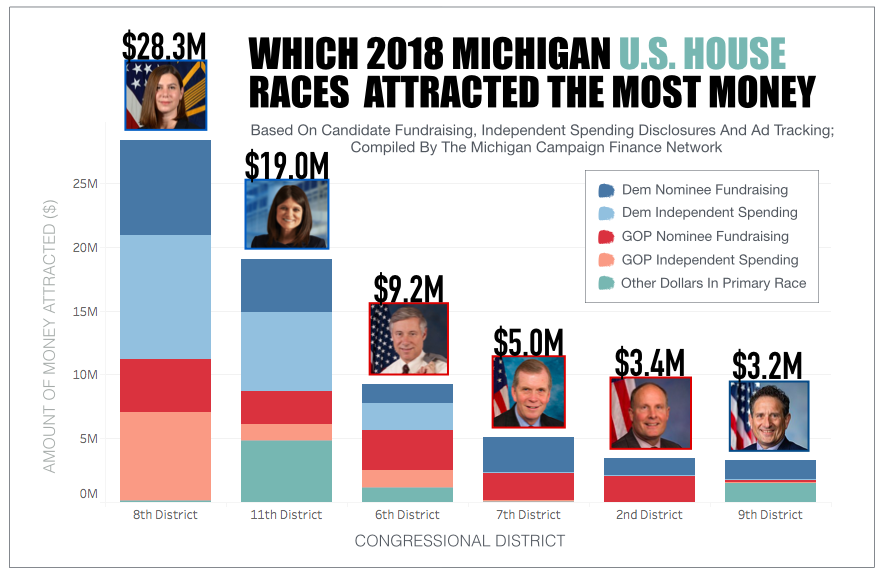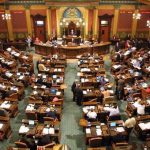The 2018 election easily set a Michigan record for spending on congressional races, with the amount of campaign cash doubling the previous high in 2016.
According to the nonpartisan Michigan Campaign Finance Network (MCFN), the primary and general elections for the state’s 14 U.S. House seats drew $80 million combined as top national donors poured money into competitive races.
The two intensely fought contests in the 8th District and 11th District, both centered in Oakland County, were largely responsible for the huge totals. Both races attracted large amounts of money from outside groups, including super PACs that can raise and spend unlimited amounts.
In the 8th, where Democratic newcomer Elissa Slotkin ousted the Republican incumbent, Mike Bishop, the overall price tag was $28.3, making it the most expensive House race, by far, in Michigan history.
One national estimate put the MI-08 district contest as the fifth-most expensive House campaign in the U.S. Slotkin won after compiling a $16 million campaign war chest.
In the 11th, where the Democrats also flipped a seat, another newcomer, Haley Stevens of Rochester Hills, defeated Republican Lena Epstein of Birmingham thanks to a $10 million effort, compared to less than $4 million by Epstein and GOP-aligned groups. Including the cash spent in 11th District’s competitive primaries in both parties, the spending total reached $19 million. This was an open seat due to the decision by then-Rep. David Trott, a Republican, not to pursue re-election.
Even in some districts where the 2018 races were not especially competitive, several-million dollar campaigns were the norm. Those include: the 6th, where Republican Rep. Fred Upton of southwest Michigan’s St. Joseph won another House term in a $9.2 million contest; 7th District, GOP Rep. Tim Walberg of Lenawee County was the winner, $5 million spent; 4th District, Republican Rep. John Moolenaar won, $3.4 million spent; 9th District, Democrat Andy Levin of West Bloomfield Township, newly elected, $3.2 million. (Moolenaar is incorrectly identified as the 2nd District congressman in the above graphic.)
More than one-third of the $80 million in spending overall was financed by groups that were acting independently of the candidates’ campaigns. This spending, on key tactics like TV ads and mailers, is not coordinated with the candidates.
Of the $28.1 million in independent spending in Michigan, a majority — $18.5 million — benefited Democratic candidates.
As it turns out, 2018 was a very good year for Michigan Democrats and a very good year for Democratic fundraising.











